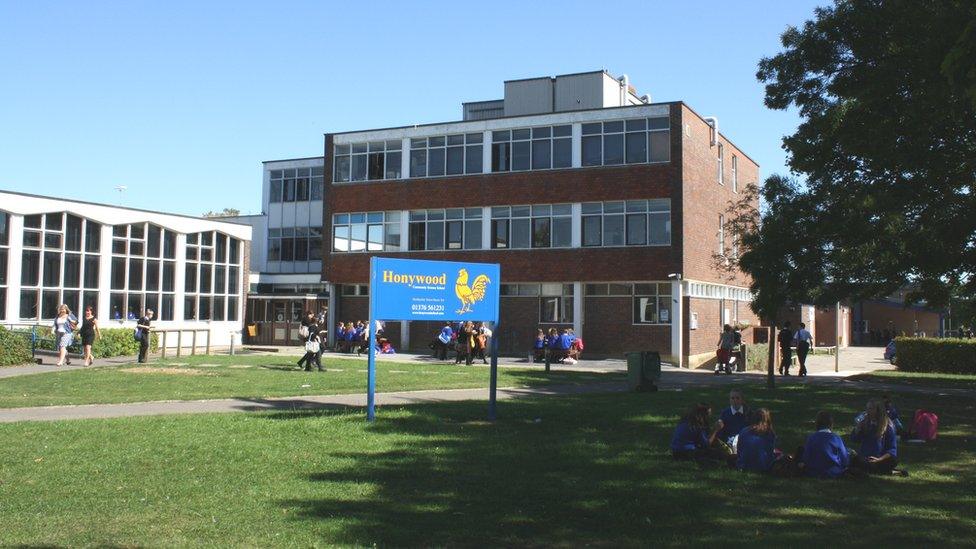What can crumbling concrete schools expect next?
- Published
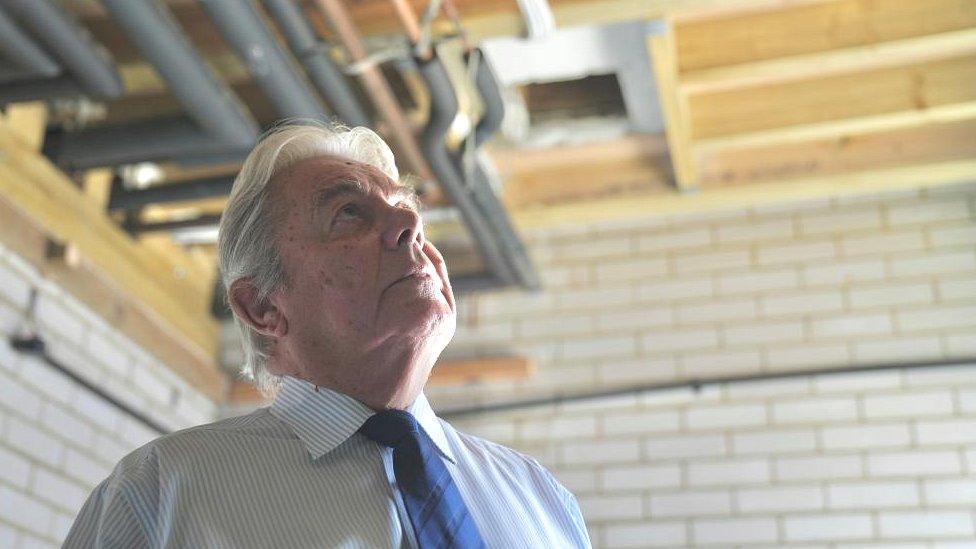
School governor Mike Mackrory says his school had to "move into overdrive to find additional accommodation for about 180 children"
More than 100 schools in England have been told to partially or fully shut buildings amid safety concerns over the concrete they were built with. The BBC went inside one school that has already had repair work done to find out what lies in store for others.
Inspectors from the Department for Education arrived at Springfield Primary School in Chelmsford four weeks before the summer term was about to end.
Their visit followed revised guidance released in April about schools built with reinforced autoclaved aerated concrete (RAAC).
As a result of the visit, the junior school section of Springfield Primary had to close overnight.
"Obviously the school had to move into overdrive to find additional accommodation for about 180 children," Mike Mackrory, the governor responsible for health and safety, said.
"Fortunately it was towards the end of the summer term."
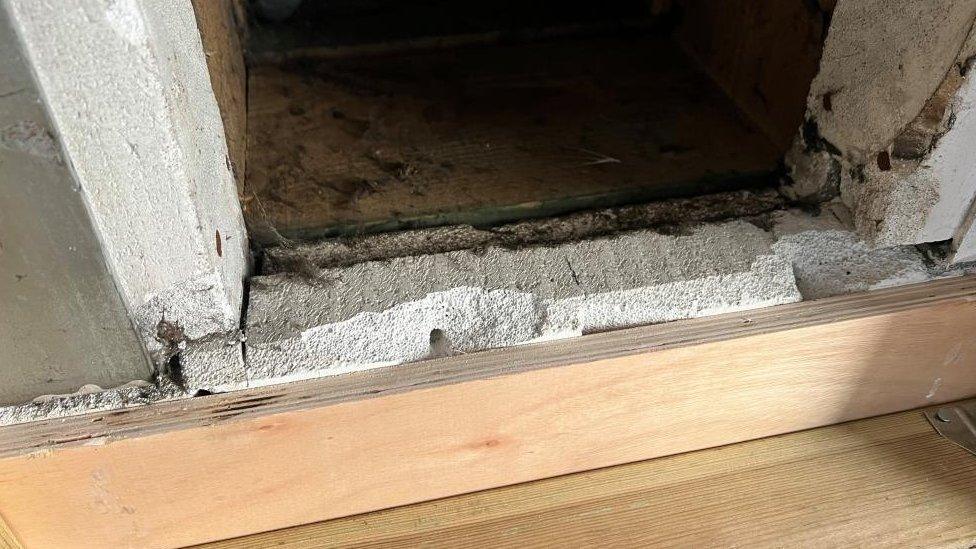
The school had already planned for the repairs to be carried out during the summer holidays
The school had already planned for the repairs to be carried out during the summer holidays which meant it was largely a case of bringing those plans forward.
"It was a mammoth logistical task for the teachers and a big change for the children," Mr Mackrory said.
The school had to find places for nearly 200 children.
Chelmsford Learning Partnership, a multi-academy trust, stepped in to help out.

Mr Mackrory told how the day after the closure, children arrived and walked to their new schools with their teachers
The junior school pupils were found places at two other schools.
One group went to The Beaulieu Park School, which, as a newly opened school is yet to reach full capacity, and a second group was housed at The Boswells School.
"It was immediately closed overnight - we had to inform parents and the children came into school in the morning and they went in crocodile fashion up to the other schools.
"The teachers were magnificent."

What is RAAC?
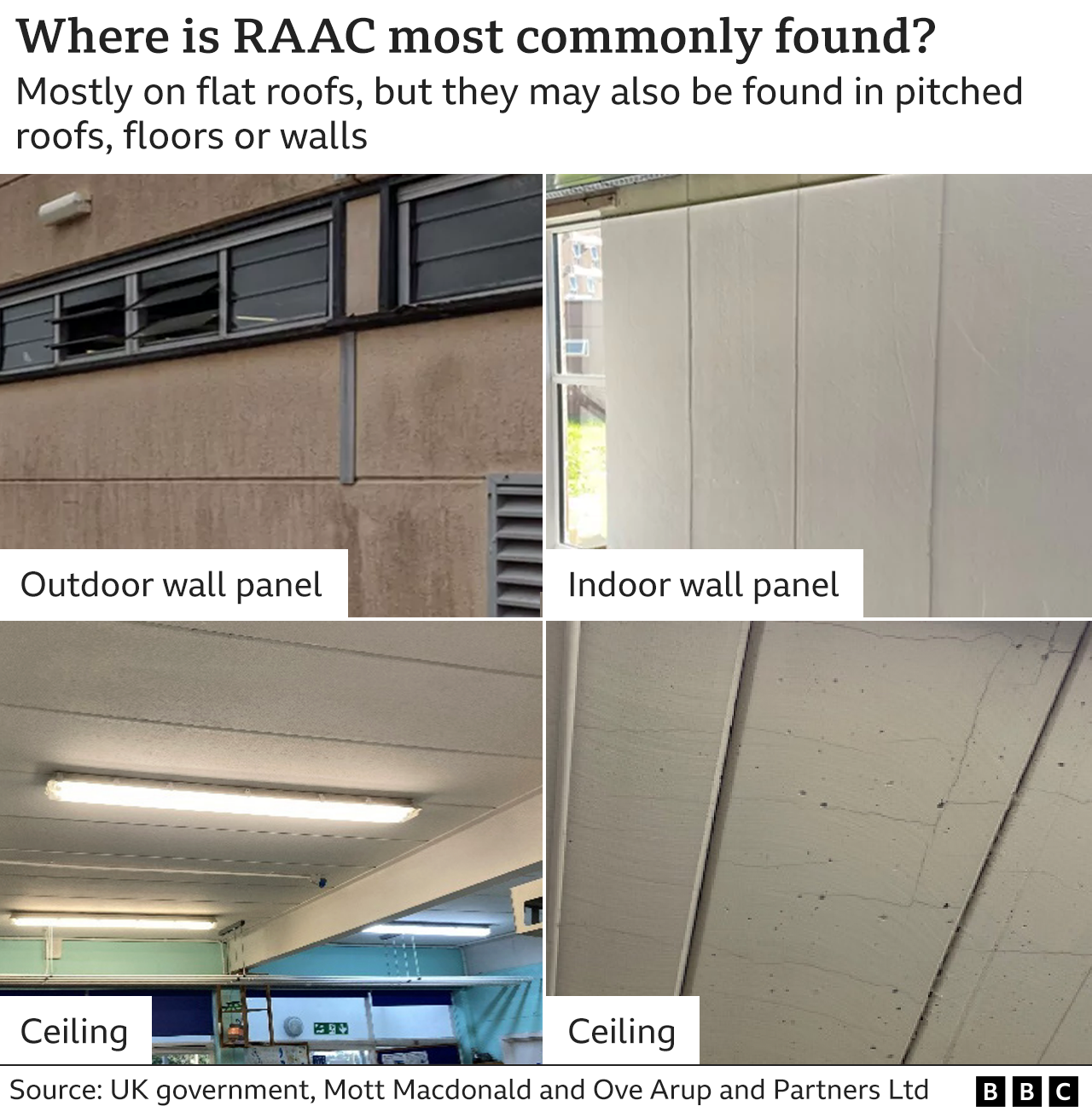
Between the 1950s and 1990s the material, known as RAAC was used mostly in flat roofing, but also in floors and walls.
It offered a cheaper alternative to standard concrete.
But its short lifespan means its use in permanent buildings has caused problems.
Source: BBC

During the summer break, contractors worked on site seven days a week to get the school as ready as possible for the autumn term.
The RAAC beams have all been replaced with timber joists and most of the necessary works have been done. Replacing the seven classroom roofs took six or seven weeks in total, Mr Mackrory said.
Uncertain whether everything would be ready for returning pupils, the school ordered three temporary classrooms.
As they are no longer needed, those buildings have been sent on to the nearby Broomfield School, one of 147 schools named by government earlier as having crumbling concrete.
"We've got all of the classrooms finished and they are ready for the children to come in tomorrow," Mr Mackrory said.
"We do have some areas like storage cupboards, the IT suite, storerooms, some of the offices which have got to completed - they won't be finished until October half term."

Follow East of England news on Facebook, external, Instagram, external and X, external. Got a story? Email eastofenglandnews@bbc.co.uk, external or WhatsApp us on 0800 169 1830
Related topics
- Published6 September 2023

- Published6 September 2023
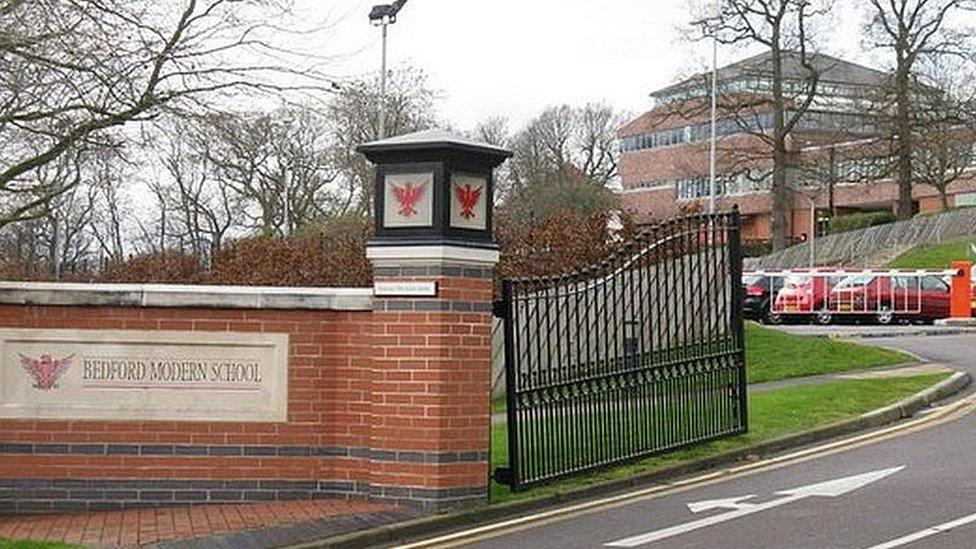
- Published6 September 2023
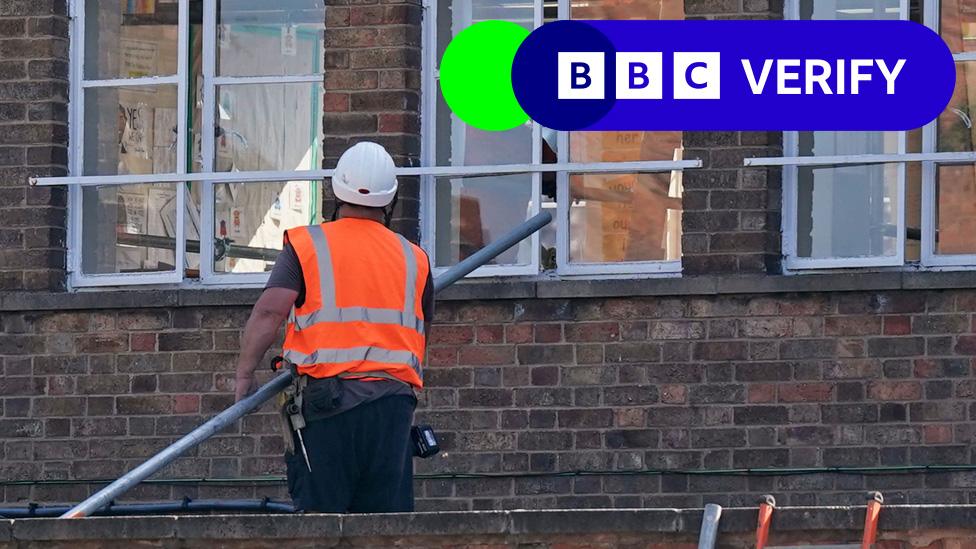
- Published5 September 2023
